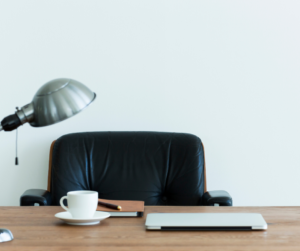As a business owner, it’s quite possible that you wear a lot of hats. As a result, you may find yourself needing to be ‘always on’ so that people can reach you at any time. You may also not want to switch off and unplug completely for fear that you miss something important or lose out on an opportunity.
According to research, the average mobile phone owner checks their device over 150 times per day and can sometimes do so every six minutes. It has also been found that 88% of consumers use their mobile devices as a second screen even while watching something on TV. That’s a lot to be connected to!
Being constantly connected – both to technology and a hectic work schedule – can lead to negative consequences such as high stress levels, low levels of productivity, fatigue, anxiety, and even depression in some cases. Not taking the time to properly disconnect from technology (and work in general) can have long-lasting effects on your mental health and your overall wellbeing.
Reasons why we need to disconnect more
It boosts productivity
One of the main reasons why we need to disconnect more is that being focused on tasks that aren’t related to work allows our brain to wander, resulting in higher levels of creative thinking, lateral problem solving, and idea generation. This means that when you return to your desk refreshed after unplugging for a while, you’re likely going to be even more productive and efficient than ever before.

Pausing can be profitable
When we overwork and choose not to regularly disconnect, we can completely miss periods of profitable pause. If you take time to properly disconnect, you may find yourself coming up with more ideas than when you are connected. Having space to rejuvenate and rest actually contributes to our effectiveness at work.
You’ll become a better version of yourself
Having an effective work-life balance in place, which is finding a good rhythm between work and rest, helps us to be the best version of ourselves both at work and at home. This is a great reason why we need to disconnect more.
It improves your innate rhythm
Something we do quite naturally as humans is that we function in a way where we focus, get unfocused, and then refocus. In today’s world, this innate rhythm of connecting and disconnecting is disrupted and replaced with checking emails, scrolling through social media, or responding to endless Slack messages. When we achieve a good rhythm of focusing and then refocussing, we find ourselves in a healthy place. When that pattern is thrown off by not disconnecting, we find ourselves feeling frazzled, frantic, and drained.
In addition to the above, we need to disconnect more for these reasons:
- It gives us more energy.
- Your stress levels will be lowered.
- You’ll find that you don’t get sick as often.
- Your mood will be boosted.
- You’ll have a better quality of sleep.
- You may experience fewer feelings of jealousy, envy, and loneliness as you will not spend as much time on social media comparing yourself to others.
- It’s easier to find solitude when you are disconnected.
Not being busy doesn’t mean you’re not achieving something
There is a certain overwork culture that suggests that we always need to be busy to achieve something. As an entrepreneur, you may feel like productivity only happens when you are actively doing something. This is not the case. In fact, your productivity is directly and positively affected when you spend time on activities such as hobbies and exercise as well as nurturing your friendships and relationships.

Make room for ‘white space’
A recent study found that over 33% of people never disconnect themselves from technology. Another survey found that 66% of respondents do believe that taking regular breaks from technology can be beneficial, but 25% of respondents said that they spend more than 10 hours a day connected to technology in some way. It’s fair to say that, as a society, we are struggling to disconnect.
What we truly need is more ‘white space’.
This term refers to making room for things other than being connected to technology. White space could involve spending time with loved ones, cooking, swimming, gardening, fishing, golfing – whatever gets your mind off your work and other responsibilities. This allows your mind to relax and focus on other things that are important to you.
Embracing white space means removing yourself from your work context and letting your brain switch gears entirely.
Disconnecting doesn’t need to be prolonged
Although there are many reasons why we need to disconnect more, it’s worth noting that taking breaks from technology and from being ‘always on’ doesn’t need to involve a vacation. Stepping away from your desk for a short walk or to grab a cup of coffee can lead to creative breakthroughs.

More tips for getting disconnecting right
Here are our top tips for disconnecting the smart way, no matter how busy you are:
- Don’t give disconnecting power. You don’t need to have to give up using your phone for an entire week. Short spurts of disconnection can work wonders.
- Block out white space in your schedule. This can be in between meetings and tasks or a random moment within the day – whatever works for you.
- Sleeping is a form of forced disconnection, it’s important to keep sleep sacred. Allow yourself to fully disconnect when you’re sleeping. This can better equip you to deal with stress the next day.
- Take cognisance of how many hours you spend connected. There are a variety of apps and browser extensions available that track how many hours you spend plugged into technology. Knowing this will help you determine what you can cut down on.
- Remind yourself that you are in control. Your phone, laptop, and tablet do not control you.
- Work on being truly present. Being present naturally requires you to disconnect and enjoy the moment.
- Every few weeks, take a half day off from work and dedicate it to doing something completely free of technology.
- Plan the first moments of your mornings around activities other than checking your phone.
If you’re someone who checks their phone first thing in the morning and the last thing in the evening, we know that taking time to disconnect won’t be the easiest feat. Unplugging can feel quite uncomfortable when we’re so used to being glued to a screen. However, if you follow the tips above and take it one day at a time, we’re sure you’ll start noticing the benefits of taking a break from technology once in a while.


